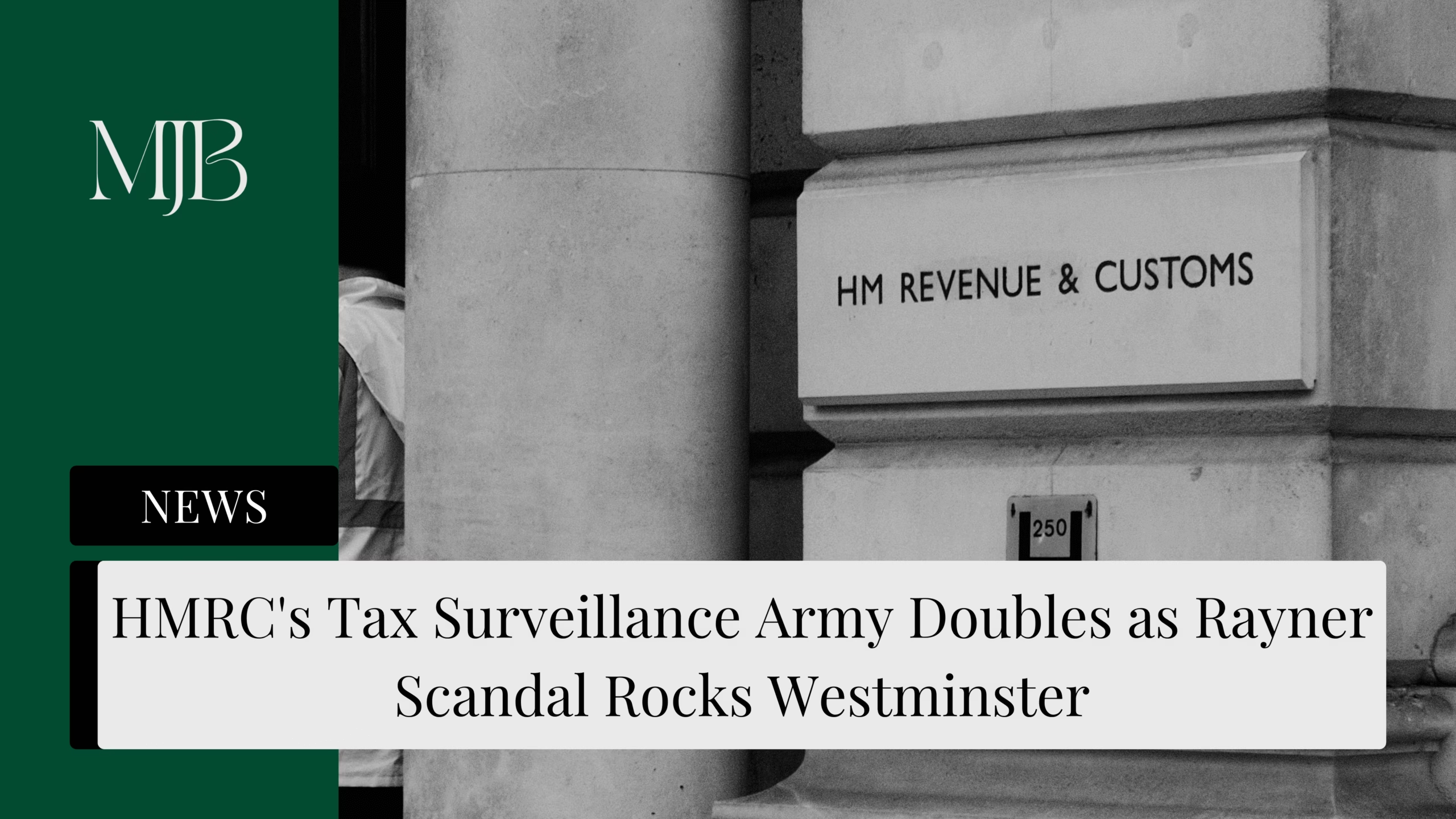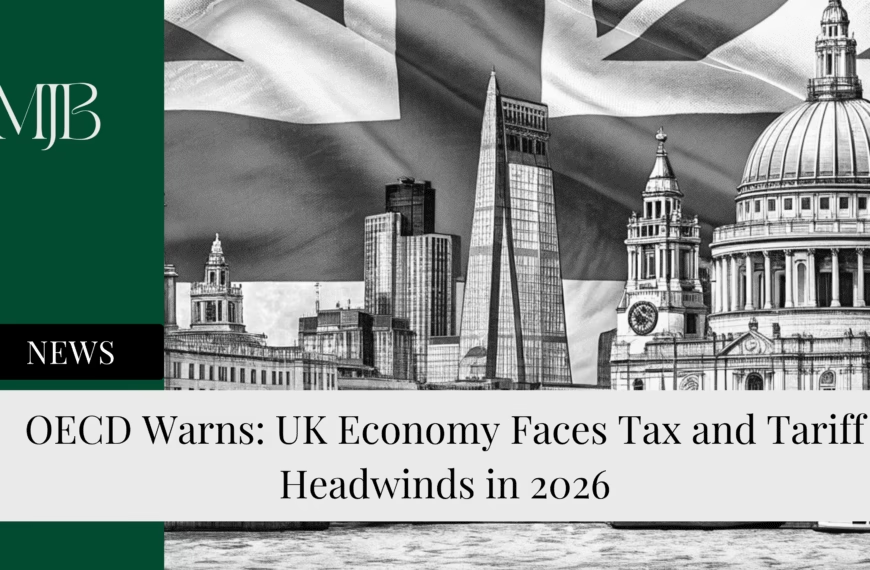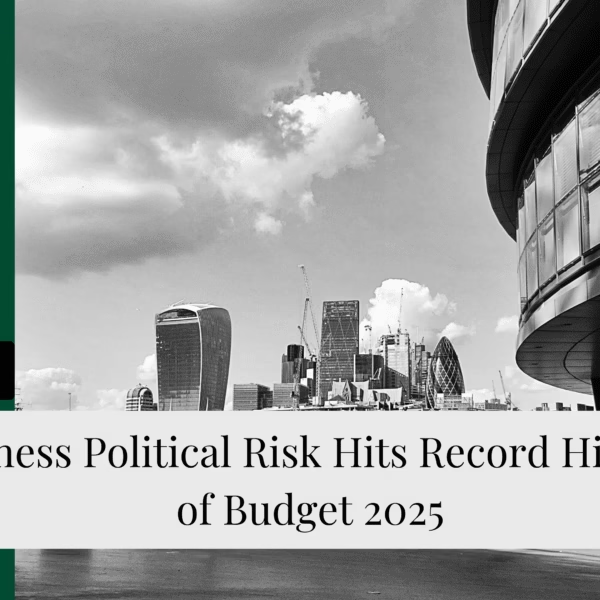Ever feel like someone’s watching you? Well, if you’re dodging taxes, they probably are. HMRC just doubled its surveillance team to 337 staff while Angela Rayner’s £40k stamp duty mess puts the tax authority under the microscope.
The timing couldn’t be more awkward. Just as HMRC flexes its surveillance muscles, their political masters are getting caught in tax scandals. Here’s what this means for your wallet and Britain’s tax system.
HMRC’s Surveillance Operation Goes Full Throttle
HMRC isn’t holding back. Freedom of Information data shows they’ve nearly doubled their covert surveillance team from 171 to 337 officers in just two years, spending £580k on the program last year alone.
What does this surveillance team actually do? Think less James Bond, more nosy neighbor with a badge. They’re authorized for “drive-bys” of properties and undercover test purchases to catch tax evaders red-handed.
But that’s not all. Another 196 employees got criminal investigation training, while over 2,000 staff received personal safety training. Translation: HMRC is preparing for more confrontational enforcement.
This expansion is part of Labour’s “Close the Tax Gap” initiative, which includes more dawn raids on suspected tax dodgers. The message is clear – pay up or face the consequences.

The Rayner Effect: When Politicians Face Their Own Medicine
Angela Rayner’s resignation as deputy PM over a £40k stamp duty underpayment couldn’t have come at a worse time for HMRC’s credibility.
The former deputy Labour leader admitted she should’ve paid higher rates on her £800k Hove flat due to “complex trust arrangements” around her family home. Ethics adviser Sir Laurie Magnus found she acted with “integrity” but failed to get proper tax advice despite warnings.
Now HMRC is reportedly investigating her case, with tax lawyers suggesting she faces around £8k in penalties for a “careless” error. The irony? The same department ramping up surveillance is now chasing one of its former political bosses.
Digital Chaos Meets Physical Surveillance
While HMRC builds its ground surveillance force, their digital transformation is hitting speed bumps. A recent glitch in their capital gains tax service could leave thousands of taxpayers accidentally underpaying.
David Wright from the Association of Taxation Technicians warns that mistakes are “inevitable,” with HMRC slapping interest charges at 8% plus fines up to 30% on underpaid CGT.
Then there’s Making Tax Digital, pulling another 800,000 people into HMRC’s online regime by April 2026. Craig Ogilvie, HMRC’s MTD director, is urging accountants to prepare clients with income over £50k now.
But here’s the kicker – while surveillance expands, HMRC’s call-handling times have nearly doubled, and compliance costs for small businesses keep rising.

The Bottom Line: Trust Issues at the Top
HMRC is playing a dangerous game. They’re building a surveillance state for tax compliance whilst their digital systems crash and their political masters dodge stamp duty.
The Rayner scandal exposes a fundamental problem: how can HMRC enforce rules consistently when Westminster can’t even get its own tax affairs straight?
For ordinary taxpayers, this means more scrutiny, higher compliance costs, and potentially more aggressive enforcement. Whether you’re a small business owner or property investor, HMRC’s watching – and they’re not afraid to knock on your door.
Ready to get your tax affairs bulletproof? Consider professional advice now, before HMRC’s surveillance team comes calling.
Frequently Asked Questions
Q1: How many HMRC surveillance officers are there now?
A: HMRC has 337 staff trained in covert surveillance, nearly double the 171 from two years ago. They spent £580k on this program last year alone.
Q2: What can HMRC surveillance officers actually do?
A: They can conduct “drive-bys” of properties, make undercover test purchases, and gather evidence of tax fraud. It’s legal surveillance designed to catch tax evaders.
Q3: Will Angela Rayner face criminal charges over her tax scandal?
A: Unlikely. Ethics advisers found she acted with “integrity” but made a “careless” error. She’s expected to face around £8k in penalties rather than criminal prosecution.
Q4: How does Making Tax Digital affect me?
A: If your income exceeds £50k, you’ll need to join HMRC’s digital regime by April 2026. This means quarterly digital submissions and potentially higher compliance costs.
DISCLAIMER
Effective Date: 15th July 2025
The information provided on this website is for informational and educational purposes only and reflects the personal opinions of the author(s). It is not intended as financial, investment, tax, or legal advice.
We are not certified financial advisers. None of the content on this website constitutes a recommendation to buy, sell, or hold any financial product, asset, or service. You should not rely on any information provided here to make financial decisions.
We strongly recommend that you:
- Conduct your own research and due diligence
- Consult with a qualified financial adviser or professional before making any investment or financial decisions
While we strive to ensure that all information is accurate and up to date, we make no guarantees about the completeness, reliability, or suitability of any content on this site.
By using this website, you acknowledge and agree that we are not responsible for any financial loss, damage, or decisions made based on the content presented.






